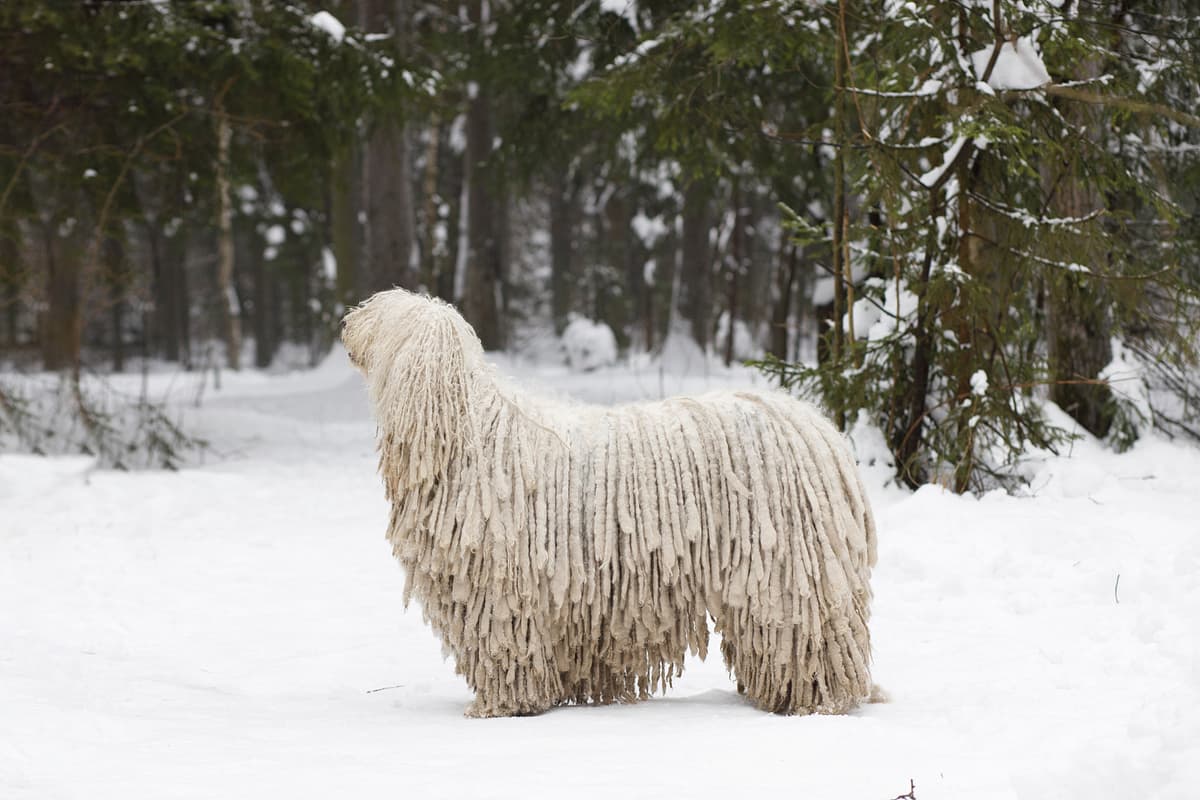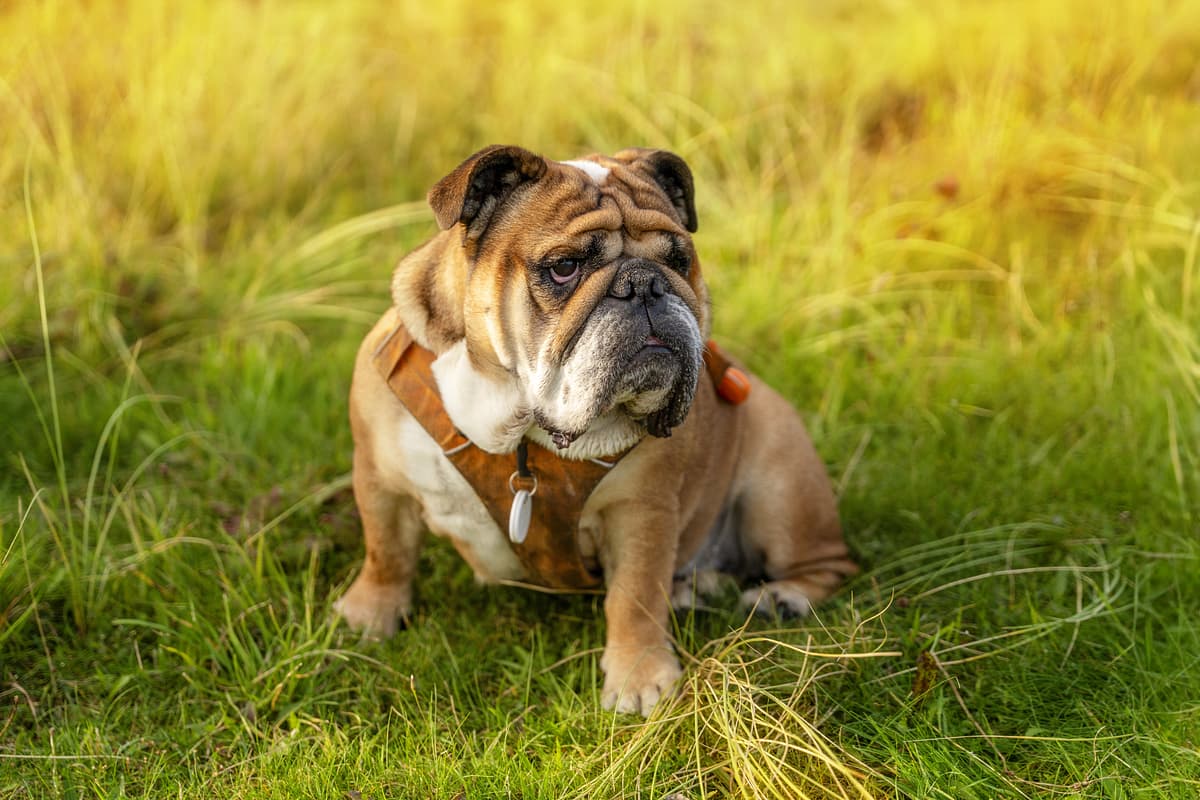Komondor vs English Bulldog
Discover the differences between Komondor and English Bulldog to make the best choice for your situation.
Try different breeds

Komondor
A loyal guardian with a striking corded coat and calm demeanor. Protective yet gentle, this breed thrives as a devoted family companion and vigilant watchdog.

English Bulldog
Stocky, courageous, and affectionate, this breed charms with its wrinkled face and calm nature. Loyal and gentle, it thrives as a loving family companion.
Quick comparison
Large
50–61 kg
Corded, dense
10–12 years
36–50 kg
Moderately active
Medium
23–25 kg
Short, smooth
8–10 years
18–23 kg
Low activity needs
Personality & behavior
Compare the personality traits and behavioral characteristics of both breeds.
Komondor
Reserved with strangers, loyal to family
Quick learner, independent decision-maker
Moderate activity, enjoys purposeful exercise
Not particularly playful, prefers working roles
Adapts slowly, prefers familiar routines
English Bulldog
Affectionate and gentle with family and children
Learns basic commands with some patience
Prefers lounging over vigorous physical activity
Enjoys play but tires fairly quickly
Adjusts well to most living environments
Care needs
Exercise, grooming, and daily care requirements
Komondor
Hip dysplasia, entropion
English Bulldog
Brachycephalic syndrome, skin fold infections
Suitability
How well each breed fits different living situations and families
Komondor
Challenging for beginners
Requires confident, experienced handler due to independence and guarding instincts
Not apartment friendly
Needs space and can be vocal, making apartments less suitable
Moderately suitable
Enjoys activity but prefers purposeful tasks over constant play
Needs supervision
Protective nature may overwhelm small children without proper socialization
Potentially territorial
May not tolerate unfamiliar pets unless raised together early
Poorly suited
Suffers from separation anxiety and may become destructive if left alone too long
English Bulldog
Good option
Easygoing, low-maintenance nature suits owners with limited dog experience
Excellent fit
Moderate exercise needs and calm demeanor work well in small living spaces
Not ideal
Low stamina and breathing issues make them unsuited for high-activity lifestyles
Very suitable
Gentle, patient, and tolerant with young children when properly socialized
Usually compatible
Generally sociable but may need guidance with other pets, especially dogs
Not recommended
They struggle with long periods alone and are prone to separation anxiety
Breed strengths
What each breed excels at and their best qualities
Komondor
- Excellent livestock guardian instincts
- Loyal and protective with family
- Highly intelligent and observant
- Low shedding due to corded coat
- Strong territorial awareness and alertness
English Bulldog
- Affectionate with family members
- Generally good with children
- Low exercise requirements
- Minimal grooming needs
- Adaptable to apartment living
Challenges & considerations
Potential challenges and considerations for each breed
Komondor
- Requires extensive coat maintenance and grooming
- Can be wary of strangers and visitors
- Needs consistent early socialization
- Not suited for apartment or urban living
- May show stubbornness during training sessions
English Bulldog
- Prone to respiratory problems
- High risk of overheating
- Susceptible to skin infections
- Can be stubborn during training
- Tends to drool frequently
Ready to choose your perfect breed?
Learn more about each breed or compare other breeds to find the perfect match for your lifestyle.
Discover more helpful tools
Make use of our other free tools to get the most out of your pet experience
